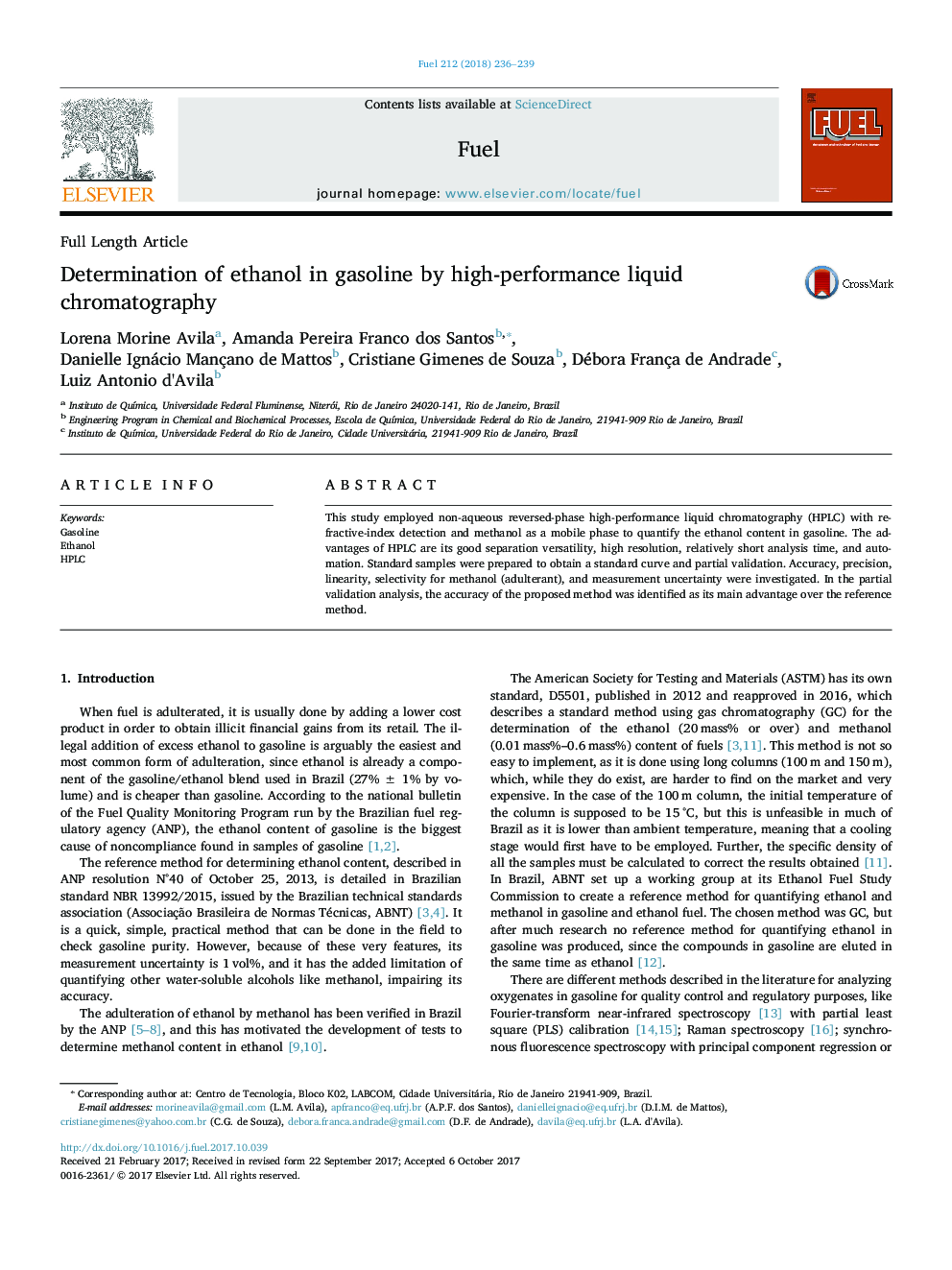| Article ID | Journal | Published Year | Pages | File Type |
|---|---|---|---|---|
| 4768272 | Fuel | 2018 | 4 Pages |
Abstract
This study employed non-aqueous reversed-phase high-performance liquid chromatography (HPLC) with refractive-index detection and methanol as a mobile phase to quantify the ethanol content in gasoline. The advantages of HPLC are its good separation versatility, high resolution, relatively short analysis time, and automation. Standard samples were prepared to obtain a standard curve and partial validation. Accuracy, precision, linearity, selectivity for methanol (adulterant), and measurement uncertainty were investigated. In the partial validation analysis, the accuracy of the proposed method was identified as its main advantage over the reference method.
Related Topics
Physical Sciences and Engineering
Chemical Engineering
Chemical Engineering (General)
Authors
Lorena Morine Avila, Amanda Pereira Franco dos Santos, Danielle Ignácio Mançano de Mattos, Cristiane Gimenes de Souza, Débora França de Andrade, Luiz Antonio d'Avila,
